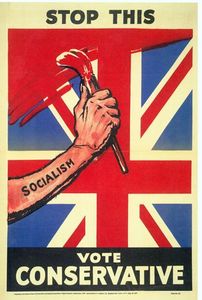Thomas R. Flintoff (1904-1994): Politics, Protest & Class
As well as discussing anecdotes from his life, Thomas R. Flintoff informs us of socialand political changes that took place that interested and affected Flintoff and his family. These included The National Insurance Act, which came into operation in 1913 which ‘provided free medical treatment and sickness pay of ten shillings per week. Hospital treatment was not however included.’ (Flintoff, p.4) Flintoff explains how hospital and doctor fees were extremely expensive for people of the working-class. Those who were able to afford it often became members of Friendly Societies which was a system that would contribute to the costs. However, families who were not able to afford the fees often created their own herbal remedies because they didn’t want to risk a debt collector calling at their house to demand the bill to be paid.

Thomas R. Flintoff was extremely passionate about politics. From an early age Flintoff joined what was called the Junior Conservative Association. During the General Election of 1922, The Hon. G.F Stanley who had been the Conservative Member of Parliament for Preston had been defeated and Preston was then represented by a Labour M.P and a Liberal M.P despite the
Conservative Government being elected. At the time there was considerable upheaval and in 1923 the Conservative Prime Minister dissolved Parliament to try and get a mandate tariff protection. Preston then became divided into wards and Thomas R Flintoff was invited to become the Secretary of St John’s ward, which was the ward where he lived and was well known:
‘During the next few years I was to play a very active part in Politics, for with Parliamentary elections in December 1923, October 1924, May 1929 (A by-election in Preston in July 1929) October 1931, and November 1935, together with the General Strike in 1926’ (Flintoff, p.31)
Throughout this busy period all political parties became very active in attempts to earn sufficient votes. At the time each of the parties had junior organisations. Flintoff was involved with the Junior Conservatives as one of the speakers during the debates that were held between the youth organisations.
In 1928 male and females over the age of twenty-one were eligible to vote. This was a significant time for the working-class as it meant they became a recognisable sector of society and were able to voice their views.
Flintoff’s involvement with politics from such a young age highlights his passion and deep interests and views of others within society. Being a member of the Conservative party when the Preston was represented by Labour must have been tough for Flintoff. This highlights his motivational qualities that he possesses and his determined characteristic to achieve what he strongly believes in.
He then went on to attend Stott College, a conservative residential college, where he studied; Political Economy, Constitutional History, Local and National Government and classes for Public Speaking. It is this level of education and strong interest that clearly enable him to go on to publish political writing at a later date.

Leave a Reply